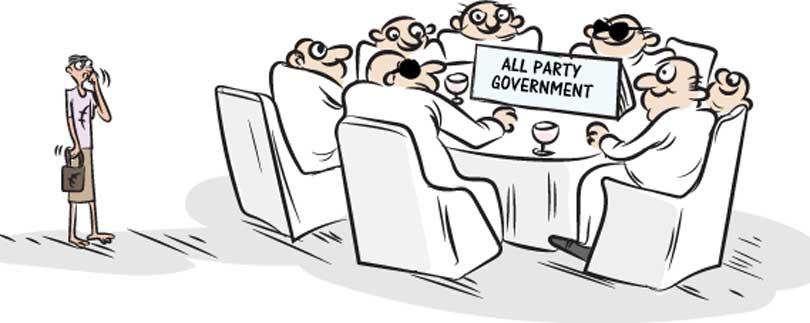Reply To:
Name - Reply Comment

Has the political crisis that had engulfed the country some two weeks ago been resolved? Despite some groups questioning the legitimacy of the President and the government, the President was constitutionally elected by the Parliament on July 20 and Cabinet was also sworn in by him on July 22 according to the law. Protests against the government seem to be gradually withering away.
The question of legitimacy of the President and the government is being raised on the grounds that the President was voted in by the majority of the same ruling party, the Sri Lanka Podujana Peramuna (SLPP) against the leadership of which the people revolted since March and the board of ministers is the same 18-member continuity Cabinet of the former President Gotabaya Rajapaksa. The new Prime Minister is also a staunch loyalist of the Rajapaksas.
Yet, challenging the legality of the election of the President and the appointment of the Cabinet is out of the question. Their installing is logical and legal. And the people’s uprising seems to have neutralized at least cosmetically or temporarily both by a crackdown and exhaustion of slogans among the protestors, with the ouster of the Gotabaya Rajapaksa as the President. Hence, one can argue that the political crisis is over now. Only the time would be able to prove it or disprove it, particularly based on how the government handles the economic crisis.
Nevertheless, some of the issues put forward by small political parties and accepted by the government during the height of the political turmoil as a remedy to both the economic crisis as well as the political crisis is still being debated as a panacea. The concept of “All-party government” is on top of all of them. President Ranil Wickremesinghe seems to be working hard for it. The idea behind the concept is that if the political parties in Parliament got together, without criticizing each other, the economic crisis, especially the foreign exchange crisis which created a plethora of issues affecting every aspect of the economy and thereby every aspect of lives of the people could be resolved.
In fact, there is a very serious issue in the country to resolve – the economic crisis. The country owes to foreign governments and institutions more than US$50 billion and repayments about US$4 billion due this year. Yet, the government on April 12 announced a temporary default of all external debts in order to avoid a hard default. Meanwhile, the country needs more than US$6 billion only for fuel imports annually. The foreign exchange crisis has in turn hit hard the very industries and services that earn foreign exchange for the country. No party seems to have any solution, except for the programme involving the International Monetary Fund (IMF) which was initiated by the Gotabaya Rajapaksa government, though belatedly.
How the politicians are going to resolve these issues through an all-party government is not clear. True, the crisis demands new ideas, and only a frank exchange of views among people knowledgeable on the subject, without the influence of party agendas and greed for portfolios would serve the purpose. Hence, the contribution of such knowledgeable people in political parties and relevant fields is essential at this juncture.
However, Sri Lanka’s political culture would stand in the way, as the party in the saddle would plunder all the credit, if the problem is resolved. That is where the party signboards matter. Nonetheless, installing a coalition government without formulating a policy framework for the resolution of the crisis would not necessarily be an assurance that such a framework is forthcoming. Besides, it would negate the existence of a strong Opposition which is indispensable for a healthy democracy.
The latest statement issued by NFF leader Wimal Werawansa is worth pondering in this regard. Denying a statement by President Ranil Wickremesinghe that his party (NFF) had agreed to join an All-party government, Weerawansa explained in his statement that the position of his party was that the parties must first collectively devise a policy basis to resolve the crisis and only if they succeed in that endeavour, they could join hands to implement that recovery plan.